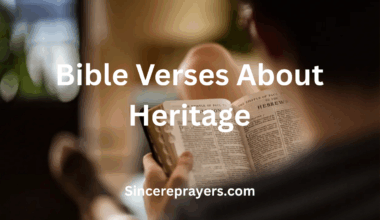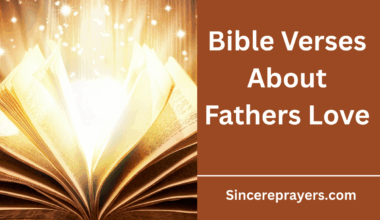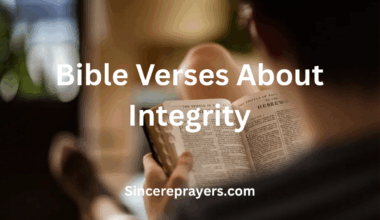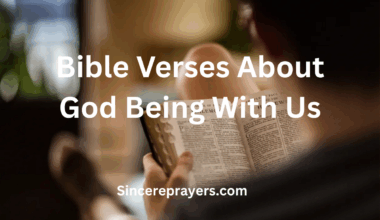From the earliest pages of Scripture, hunting has been a part of humanity’s story. Whether for food, protection, or survival, the act of hunting connects us to the rhythms of nature and the stewardship of God’s creation. In the Bible, hunting is often depicted not only as a practical necessity but also as a powerful metaphor for pursuit, patience, and spiritual vigilance. Through it, we see lessons about human responsibility, divine guidance, and the importance of respect for life.
Throughout the Old Testament, figures like Nimrod, Esau, and others are identified as hunters symbolizing both human skill and the potential for moral reflection. Hunting in biblical times was a means of sustenance, yet it also illustrated deeper truths about diligence, courage, and the balance between man’s dominion and God’s sovereignty. The hunter’s patience, precision, and respect for the created order reveal a parallel to our spiritual lives as believers pursuing righteousness.
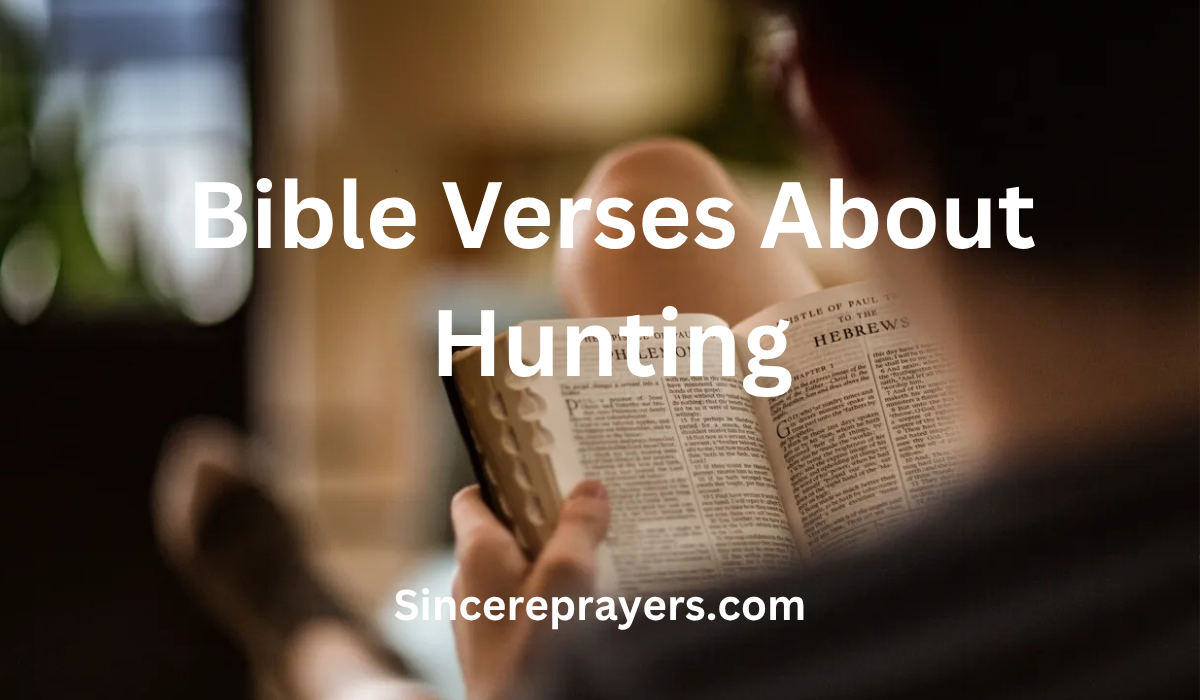
In spiritual terms, “hunting” extends beyond the physical act, it becomes a metaphor for seeking God, truth, and wisdom. Just as a hunter searches carefully and waits for the right moment, the Christian life involves pursuing God’s presence with patience and discernment. Scripture repeatedly calls us to “seek” the Lord with our whole heart, reminding us that spiritual pursuit requires both perseverance and humility.
This collection of 35 powerful Bible verses about hunting explores how the Word of God uses this theme to teach lessons of focus, endurance, and faith. Whether you’re an outdoorsman, a lover of nature, or someone seeking to understand biblical metaphors of pursuit and purpose, these verses will remind you that every aspect of creation even the hunt can reflect divine truth and stewardship. Let’s explore what the Bible teaches about hunting and the spiritual insights it holds for today’s believer.
35 Most Effective Bible Verses About Hunting in 2025
1. Genesis 10:9
“He was a mighty hunter before the Lord; that is why it is said, ‘Like Nimrod, a mighty hunter before the Lord.’”
Nimrod’s reputation as a “mighty hunter before the Lord” reveals early humanity’s strength and ambition. This verse highlights human skill and dominance, yet it also warns against pride. Being “before the Lord” means living in His awareness—our pursuits, including hunting, should honor God’s order and not exalt self. Skill without submission can lead to arrogance, but strength guided by reverence brings true honor to the Creator.
2. Genesis 27:3
“Now then, get your equipment—your quiver and bow—and go out to the open country to hunt some wild game for me.”
Isaac’s instruction to Esau shows hunting as a normal and valued part of life. It was both a means of providing food and an act of service to loved ones. This verse demonstrates the role of skill, provision, and obedience within family life. For believers, it reminds us that our labor—whether hunting or working—is blessed when done in love and for the benefit of others.
3. Proverbs 12:27
“The lazy do not roast any game, but the diligent feed on the riches of the hunt.”
This proverb connects hunting to diligence and responsibility. The lazy hunter wastes what he catches, but the diligent one enjoys the reward of his efforts. Spiritually, this teaches that God blesses perseverance and stewardship. Just as hunters prepare carefully to gain results, believers must pursue their spiritual goals with consistency and care, valuing the fruits of their labor as gifts from God.
4. Job 38:39–40
“Do you hunt the prey for the lioness and satisfy the hunger of the lions when they crouch in their dens or lie in wait in a thicket?”
God reminds Job of His sovereign control over creation—even over predators that hunt. This verse emphasizes that God provides for all living creatures, demonstrating His intricate wisdom. While humans may hunt for need or sport, the natural world operates under divine balance. It invites us to respect God’s design, recognizing that He is the ultimate Provider who sustains life in every corner of creation.
5. Psalm 91:3
“Surely he will save you from the fowler’s snare and from the deadly pestilence.”
The “fowler’s snare” is a metaphor for traps set by enemies or spiritual danger. This verse reminds believers that God protects us from unseen snares that threaten our peace and faith. Just as a hunter sets traps for birds, the enemy seeks to ensnare our souls. But through trust in God, we find safety, freedom, and deliverance from every spiritual scheme and hidden danger.
6. Jeremiah 16:16
“But now I will send for many fishermen,” declares the Lord, “and they will catch them. After that I will send for many hunters, and they will hunt them down on every mountain and hill and from the crevices of the rocks.”
This verse uses the imagery of hunters to represent God’s search for His people—both for judgment and redemption. The hunters symbolize divine pursuit, showing that no one can hide from God’s presence. Just as a hunter tracks his prey with determination, God relentlessly seeks hearts that have wandered. His goal is not destruction, but restoration, bringing His people back into righteousness through divine conviction and mercy.
7. Lamentations 3:52
“Those who were my enemies without cause hunted me like a bird.”
Here, the writer expresses deep suffering from unjust persecution, using hunting imagery to describe his pain. Like a bird pursued without reason, he feels trapped and defenseless. Yet this verse reveals the comfort that even in oppression, God sees and delivers. It reminds believers that spiritual enemies may pursue us, but our security rests in the Lord who protects, vindicates, and restores those who trust Him through adversity.
8. Proverbs 6:5
“Save yourself like a gazelle from the hand of the hunter, like a bird from the snare of the fowler.”
This wisdom teaches urgency in escaping destructive habits or debt. The hunted gazelle symbolizes one who must act quickly to avoid danger. Spiritually, it warns believers to flee from sin and temptation before being trapped. Just as a hunter’s snare can destroy, spiritual complacency can ensnare our hearts. Freedom comes through repentance, discipline, and the pursuit of righteousness before danger closes in.
9. 1 Samuel 26:20
“Now do not let my blood fall to the ground far from the presence of the Lord. The king of Israel has come out to look for a flea—as one hunts a partridge in the mountains.”
David speaks to Saul, comparing his pursuit to a hunter chasing a harmless bird. This image underscores the futility and injustice of Saul’s actions. The hunted partridge represents innocence pursued by envy or fear. For believers, it reflects how God defends the innocent and humbles those who misuse power. No matter how fiercely the enemy hunts, God preserves those who walk uprightly before Him.
10. Genesis 25:27
“The boys grew up, and Esau became a skillful hunter, a man of the open country, while Jacob was content to stay at home among the tents.”
This verse contrasts two brothers—Esau, the hunter, and Jacob, the home-dweller. Esau’s hunting skills symbolize strength and independence, yet they also hint at impulsiveness. Jacob’s quiet nature reflects patience and foresight. God’s favor later rests with Jacob, reminding us that outward skill does not replace inward faith. Success in hunting or life means little if it’s not guided by humility and spiritual discernment.
11. Psalm 124:7
“We have escaped like a bird from the fowler’s snare; the snare has been broken, and we have escaped.”
This psalm celebrates divine deliverance from traps set by enemies. The “fowler’s snare” represents spiritual or physical danger, and the breaking of it signifies victory through God’s intervention. Like a bird freed from captivity, believers experience liberty through God’s power. This verse inspires gratitude and faith, reminding us that no trap—seen or unseen—can hold those whom the Lord has chosen to set free.
12. Ezekiel 19:8
“Then the nations set against him from regions on every side. They spread their net over him, and he was trapped in their pit.”
This verse portrays Israel’s leaders as captured lions, ensnared by surrounding nations. The net symbolizes human pride meeting divine justice. For the believer, it’s a solemn warning against arrogance and rebellion. When we stray from God’s guidance, the snares of the world can entangle us. Yet through repentance, God breaks those nets and restores those willing to return to His protection.
13. Habakkuk 1:15
“The wicked foe pulls all of them up with hooks, he catches them in his net, he gathers them up in his dragnet; and so he rejoices and is glad.”
This verse condemns the ruthless exploitation of others, using fishing and hunting imagery. The wicked celebrate their conquests, forgetting God’s justice. It serves as a warning that selfish power and cruelty are temporary. God, the righteous Judge, will overturn every unjust victory. Hunters must remember that while they may seek dominion, it is God who ultimately rules and holds every heart accountable.
14. 1 Kings 13:24
“As he went on his way, a lion met him on the road and killed him, and his body was left lying on the road, with both the donkey and the lion standing beside it.”
This sobering story reminds us that disobedience to God can lead to destruction. The lion’s attack was not random—it was divine judgment for ignoring God’s word. It symbolizes how danger awaits when we walk outside of obedience. For the hunter or believer, this verse reinforces reverence for God’s commands. True safety lies not in skill or strength, but in obedience to His will.
15. Proverbs 30:30
“A lion, mighty among beasts, who retreats before nothing.”
The lion embodies courage, power, and fearlessness. This proverb uses the lion’s nature to illustrate boldness—qualities every believer should embody when facing spiritual battles. Like a hunter who does not flee from challenge, we’re called to stand firm in faith. Yet this confidence must rest in God, not pride. When our strength comes from Him, we can face any foe without retreat.
16. Amos 3:5
“Does a bird swoop down to a trap on the ground when no bait is there? Does a trap spring up from the ground if it has not caught anything?”
This rhetorical question from Amos highlights God’s justice and purpose. Nothing happens by chance—every cause has an effect. The imagery of hunting traps teaches discernment and awareness. Spiritually, it reminds believers to avoid the snares of sin and deception. When we walk in wisdom and obedience, we recognize and avoid the “bait” the enemy sets to lead us astray.
17. Psalm 10:9
“He lies in wait like a lion in cover; he lies in wait to catch the helpless; he catches the helpless and drags them off in his net.”
This verse paints a vivid picture of the wicked as hunters preying upon the innocent. The predator’s stealth reflects spiritual evil seeking to destroy the vulnerable. But the psalm assures us that God sees every act of injustice and will avenge the oppressed. As believers, we’re reminded to trust in God’s justice and to protect, not prey upon, those weaker than ourselves.
18. Psalm 140:5
“The arrogant have hidden a snare for me and spread out the cords of their net, and have set traps for me along my path.”
David’s prayer reveals the reality of hidden dangers and deceitful plots. Just like a hunter’s traps, the enemy sets spiritual snares to derail us. Yet the verse reminds us to stay alert and prayerful. God grants discernment to see beyond appearances and walk safely. Our security lies not in self-awareness alone, but in continual dependence on God’s protection and wisdom.
19. Isaiah 7:24
“Hunters will go there with bow and arrow, for the land will be covered with briers and thorns.”
This prophetic warning to Judah illustrates desolation following judgment. The land once fruitful becomes wild—fit only for hunters, not farmers. Spiritually, it symbolizes how sin can transform blessings into barrenness. But even in desolation, God preserves purpose; the hunters represent those still sustaining life amid loss. It teaches that obedience brings abundance, while rebellion allows chaos to reclaim what God once blessed.
20. Jeremiah 4:29
“At the sound of horsemen and archers every town takes to flight. Some go into the thickets; some climb up among the rocks. All the towns are deserted; no one lives in them.”
This verse depicts fear and flight during judgment, showing the consequences of rebellion. The imagery of hunters and archers evokes terror, yet it also points to accountability. When people abandon God’s protection, they face the pursuit of judgment. For believers, this serves as a solemn reminder: security comes not from hiding but from repentance and trust in the Lord’s steadfast mercy.
21. Micah 7:2
“The faithful have been swept from the land; not one upright person remains. Everyone lies in wait to shed blood; they hunt each other with nets.”
Micah describes a corrupt society where violence and deceit rule. The “hunting with nets” symbolizes betrayal and exploitation. It’s a chilling image of moral decay when humanity loses reverence for God. Yet the prophet’s words urge us toward faithfulness and compassion. Even when wickedness prevails, God calls His people to stand apart—living with integrity, truth, and justice amid a broken world.
22. Psalm 91:13
“You will tread on the lion and the cobra; you will trample the great lion and the serpent.”
This verse declares spiritual authority over danger and evil. The lion and serpent symbolize powerful enemies—both physical and demonic. Through faith in God, believers walk in divine victory, unharmed by what seeks to destroy. Just as hunters must face predators, Christians confront spiritual opposition. Yet, through Christ’s power, we conquer fear, temptation, and darkness, standing firm in the strength of the Almighty.
23. Ezekiel 19:3
“She brought up one of her cubs, and he became a strong lion. He learned to tear the prey, and he became a man-eater.”
This verse describes the corruption of leadership in Israel through the metaphor of a lion turned predator. What began as strength devolved into destruction. Spiritually, it warns against abusing power and losing compassion. The “man-eater” reflects self-serving ambition. As hunters of truth and justice, believers are called to channel strength into service, not selfishness—using our God-given influence to uplift, not devour, others.
24. Psalm 35:7
“Since they hid their net for me without cause and without cause dug a pit for me.”
David laments the unjust traps set by his enemies, reflecting human betrayal and malice. The hunter’s imagery exposes the cruelty of deceit. Yet David’s response is prayer, not vengeance—showing his trust in God’s justice. This verse teaches believers to let God fight their battles. Though the enemy plots in secret, every snare laid against God’s people will ultimately fail under divine protection.
25. Hosea 9:8
“The prophet, along with my God, is the watchman over Ephraim, yet snares await him on all his paths, and hostility in the house of his God.”
This verse reveals the challenges faced by God’s messengers. Like a hunter surrounded by traps, the prophet faces opposition from those he seeks to warn. It’s a reminder that doing God’s work often invites resistance. Still, faithfulness is rewarded. Believers must stand watchful and steadfast, knowing that even when surrounded by hostility, the Lord equips His servants to persevere and triumph through truth.
26. Ezekiel 32:3
“This is what the Sovereign Lord says: ‘With a great throng of people I will cast my net over you, and they will haul you up in my net.’”
God speaks judgment over Egypt using the image of a net cast by many. It illustrates divine justice—inescapable and complete. Just as hunters use nets to capture prey, God demonstrates His authority to humble nations. This verse reminds believers that no one is beyond His reach. His justice, though firm, always serves His purpose to correct, restore, and display His ultimate sovereignty.
27. Psalm 141:9
“Keep me safe from the traps set by evildoers, from the snares they have laid for me.”
This prayer expresses dependence on God for daily protection. The traps of evildoers represent deception, temptation, and spiritual danger. David seeks divine preservation from such schemes. Believers, too, must remain vigilant and prayerful, trusting that God guards every path. When our focus remains on Him, we’re shielded from hidden snares and strengthened to walk in righteousness despite the world’s opposition.
28. Ecclesiastes 9:12
“Moreover, no one knows when their hour will come: As fish are caught in a cruel net, or birds are taken in a snare, so people are trapped by evil times that fall unexpectedly upon them.”
This sobering verse reveals the uncertainty of life. Just as animals are suddenly caught, humans can be overtaken by unforeseen trials. It encourages humility and readiness before God. Life’s unpredictability should not lead to fear but to faith—placing our trust in the One who sees all. Hunters plan carefully, and so must believers prepare their hearts through daily obedience and reliance on God’s timing.
29. Psalm 11:2
“For look, the wicked bend their bows; they set their arrows against the strings to shoot from the shadows at the upright in heart.”
The psalmist describes spiritual warfare—hidden attacks from the wicked. The archer’s bow symbolizes deceitful plotting. Yet this verse reassures believers that God is our shield. Like a hunter targeted in darkness, the righteous may face unseen threats, but faith in the Lord ensures safety. We must stand firm, trusting that no weapon formed against the faithful will prosper under His protective hand.
30. Isaiah 51:20
“Your children have fainted; they lie at every street corner, like antelope caught in a net; they are filled with the wrath of the Lord.”
This verse captures the sorrow of divine discipline. The image of trapped antelope represents a people ensnared by sin. God’s wrath arises not from cruelty but from broken covenant love. Yet within His correction lies hope for restoration. It teaches believers to turn from rebellion and seek His mercy. When we humble ourselves before Him, the nets of judgment give way to freedom in grace.
31. Isaiah 24:17–18
“Terror and pit and snare await you, people of the earth. Whoever flees at the sound of terror will fall into a pit; whoever climbs out of the pit will be caught in a snare.”
This passage reflects the inescapable reach of divine justice. The imagery of traps and pits shows that human effort cannot avoid God’s righteous hand. Yet it also points to mercy—those who repent and seek Him will find deliverance. For believers, it’s a reminder that worldly escape fails, but refuge in Christ offers true safety from sin’s traps and eternal separation.
32. Psalm 91:7
“A thousand may fall at your side, ten thousand at your right hand, but it will not come near you.”
This powerful declaration assures divine protection amid danger. While others may fall into life’s snares, God shields those who dwell in His presence. Like a hunter who remains calm in chaos, faith steadies the believer’s heart. The verse strengthens our confidence that no calamity—spiritual or physical—can overpower those who trust in the Almighty’s unfailing defense and covenant promise.
33. 2 Samuel 22:35
“He trains my hands for battle; my arms can bend a bow of bronze.”
David acknowledges God as the source of his strength and skill. Hunting and warfare required precision, but divine training perfected both. This verse reminds believers that every ability, physical or spiritual, comes from God’s empowerment. He equips us to overcome adversity and defend righteousness. Whether in the wilderness or spiritual warfare, victory belongs to those whose strength flows from divine preparation and trust.
34. Isaiah 11:6–7
“The wolf will live with the lamb, the leopard will lie down with the goat… and the lion will eat straw like the ox.”
This prophetic vision reveals peace in God’s restored creation. Hunters and prey coexist in harmony, symbolizing the end of violence and fear. It points to Christ’s kingdom, where all creation is reconciled. For believers, it offers hope beyond conflict—the promise of eternal peace. The verse reminds us that one day, the need to hunt will cease, replaced by perfect unity under God’s reign.
35. Matthew 4:19
“‘Come, follow me,’ Jesus said, ‘and I will send you out to fish for people.’”
Jesus transforms the concept of hunting and fishing into a divine calling. Instead of pursuing animals, believers are called to seek souls for God’s kingdom. This verse captures the heart of evangelism—pursuit not to kill, but to give life. As spiritual hunters, we pursue others through love, compassion, and truth, drawing them into the grace and redemption found only in Christ.
Conclusion
Hunting, both literal and symbolic, carries profound lessons throughout Scripture. From Nimrod’s prowess to Christ’s call to “fish for people,” the Bible transforms a simple act of pursuit into a portrait of divine purpose. Every hunter understands patience, focus, and respect for creation qualities that mirror our spiritual journey with God. Just as the hunter must wait silently for the right moment, believers learn to wait upon the Lord, trusting His timing in every pursuit of faith.
These verses reveal that hunting in the Bible is more than an earthly activity. it is a lens through which we understand discipline, responsibility, and the sacred balance of life. Whether depicting judgment, provision, or spiritual warfare, the act of pursuit points us back to God’s sovereignty. He governs the hunter and the hunted, the predator and the prey, reminding us that all life operates under His divine order. Every snare, arrow, and net becomes a metaphor for the choices we face and the deliverance God provides.
Ultimately, the message of these Scriptures leads us to Christ, the Redeemer who transforms pursuit into purpose. Where worldly hunters seek prey, Jesus seeks hearts; where nets once trapped, His net rescues. In Him, we find freedom from sin’s snares and restoration to divine fellowship. Whether we stand in the wilderness of life’s challenges or the stillness of prayer, God calls us to pursue righteousness, patience, and love. May these verses remind every reader that true victory in the hunt is not in what we capture, but in who captures us the steadfast love of the living God.
